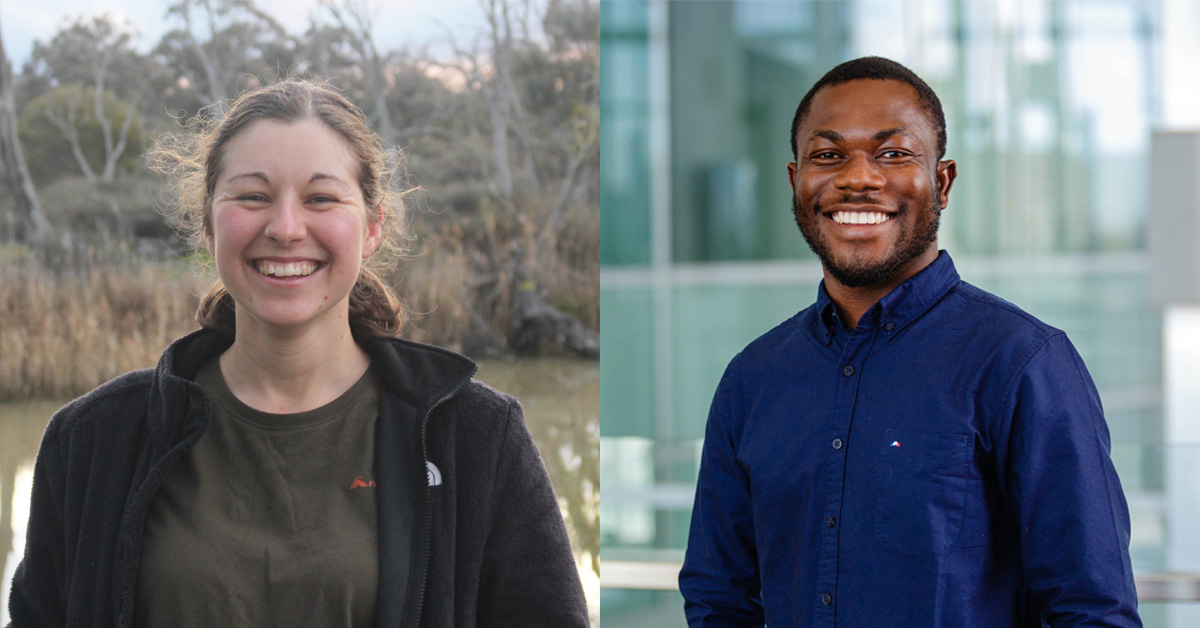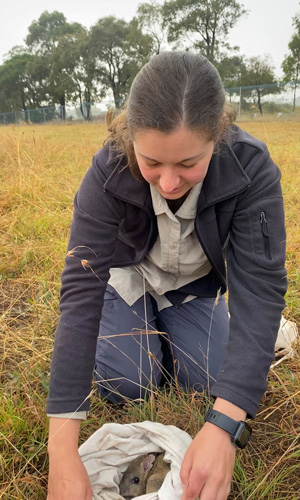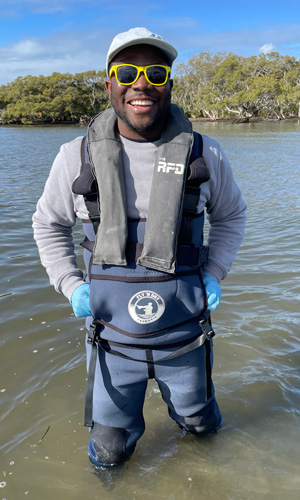
Two early career researchers have each been awarded a 2024 Max Day Environmental Science Fellowship Award for their interdisciplinary research on protecting the environment.

Digging, mycophagous (fungus-feeding) mammals were once common throughout many parts of coastal Australia, providing a range of essential ecosystem services, including improving soil health, providing a habitat for other species, creating germination niches for plants and dispersing fungal spores.
Now, due to habitat loss and the introduction of invasive species such as cats and foxes, populations of these mammals have reduced and so has the ecological services they once maintained.
Ms Aviya Naccarella, an early career ecologist at Deakin University with an interest in restoration ecology, will use translocations in Victoria to assess how digging, mycophagous mammals contribute to ecosystem function and what role these mammals can play in restoration.
“Mycophagous mammals are ecosystem engineers,” Ms Naccarella said in her application.
“My project will test the benefits of reintroductions for the restoration of ecosystem services.”
Ms Naccarella will use her Max Day grant to conduct DNA analysis on soil samples before and after translocation to increase our understanding of the influence they have on fungal community dynamics and soil health.

While the sight of plastic on a beachfront is distressing, the presence of microplastics goes unnoticed due to their microscopic size. These tiny plastic particles can have immensely negative impacts on the environment, from disrupting the food chain and endangering marine life to threatening human health.
Dr Elvis Okoffo from the University of Queensland is researching the extent of microplastic pollution in Moreton Bay near Brisbane, home to a vast biological diversity which many animal and plant species rely on for survival.
Dr Okoffo’s research will be used to evaluate the exposure and risk to the marine organisms within the bay and inform management plans to help protect this environment.
“It is imperative that we develop a comprehensive understanding of the types and distribution of microplastics in Moreton Bay to effectively address this pervasive issue,” Dr Okoffo said, in his application.
“By doing so, we can protect the health of our ecosystems, safeguard human well-being, and preserve the natural beauty of this precious marine environment.”
Dr Okoffo will use his Max Day grant to continue sample collection from the waters of Moreton Bay, developing novel sampling approaches and analytical techniques for monitoring plastic residues in these environmental samples.
Another two researchers and their projects were highly commended for their 2024 Max Day Environmental Science Fellowship Award applications:
The Max Day Award provides up to $20,000 for early career researchers working on the conservation of Australia’s flora and fauna, the ecologically sustainable use of resources, and the protection of the environment and ecosystem services. It is named in honour of Academy Fellow, the late Dr Maxwell Frank Cooper Day AO FAA, who spent a lifetime championing entomology, conservation and forestry, as well as helping other scientists.
Applications for the 2025 award round will open on 15 February 2024. Learn more about this award.
© 2026 Australian Academy of Science